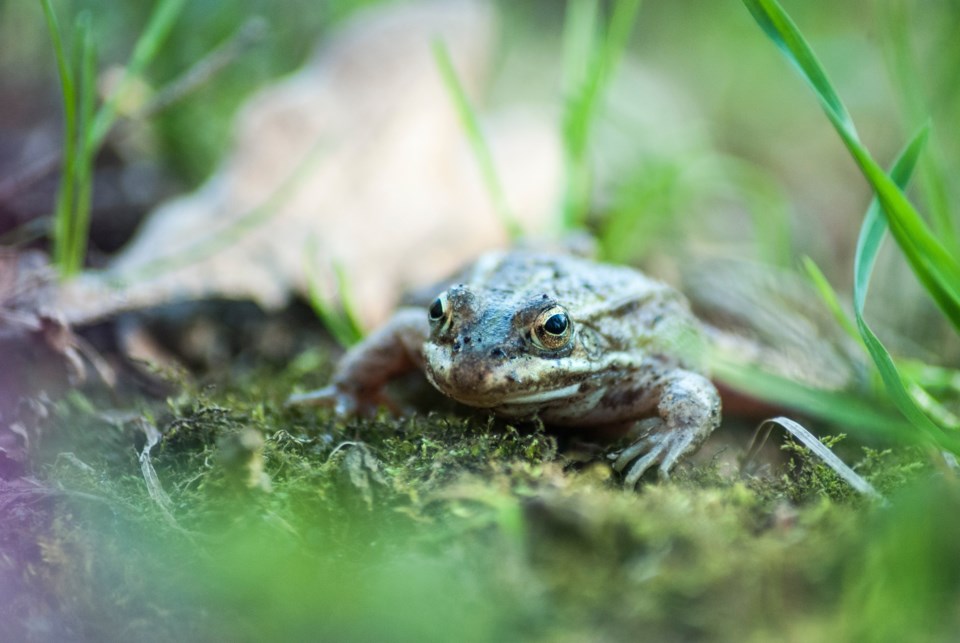While it may be the strangest thing you hear about today, there is a network of secret underground tunnels built under BC highways for amphibians.
The Government of British Columbia began constructing these safe passageways after it was determined that road traffic was killing a high number of the creatures.
In fact, a number of these cold-blooded vertebrates are considered “at risk” as a result of these incidents.
Vancouver Is Awesome spoke to Darcy C. Henderson, PhD, Senior Species At Risk Biologist, Canadian Wildlife Service, Environment and Climate Change Canada, about the risks associated with highway crossings.
He explained that amphibians move during breeding season in search of other wetlands. They require water in order to breed, and therefore thousands of them will migrate at once.
Sadly, this often means that many of our slimy friends will be killed, as they attempt to cross some of B.C.’s busiest highways.
Dr. Henderson told us that Okanagan White Lake was a particularly deadly area, with over 1,000 toad and salamander deaths recorded in a single year. What’s more, the area’s highway would only see about 350 vehicles per day, which meant that a high percentage of the creatures were killed.
With that being said, he adds that it is one of the most consistently monitored areas. As such, it does not mean that other, less monitored highways are less deadly.
Great Basin Spadefoot Toad sound large, but they are only the size of your thumb! And while they aren’t as conventionally cute as bunnies or kittens, they posses a unique charm. Sadly, these little toads are at risk in the province and their greatest threat is on highways.
Similarly, the Tiger Salamander, which has the best name we can fathom, is also registered as at risk due to highway crossings. Also, if you were wondering, it has that completely awesome name because it is striped like a tiger.
Unfortunately, even with the concerted effort of wildlife biologists and conservationists, these species are extremely endangered. Of course, it is difficult to tell people not to drive on major highways during amphibian breeding season, which is why the tunnels are built.
Sadly, tunnels often fail to prevent deaths, too. Amphibians are often hesitant to use them for a number of reasons. Scott D. Jackson from the Department of Natural Resources Conservation University of Massachusetts, Amherst wrote an article entitled “Underpass Systems for Amphibians,” which lays out some of the issues.
“it is clear to all of us that have worked with these tunnels that light, or the absence of it, is one factor responsible for tunnel hesitation. Once artificial light is provided the time it takes salamanders to enter and pass through the tunnels is dramatically reduced. Based on these observations it appears that future tunnels should be designed to maximize the amount of ambient light inside the tunnels. This could be accomplished by using larger tunnels or providing grates, rather than slotted tops, for the tunnels,” reads the report.
With the bad news in mind, Dr. Henderson did indicate the efforts in Whistler to protect the migration of Western Toads are impressive.
Whistler describes this artistic show of toad breeding in mother nature as such:
“This migration can often appear as a moving carpet, as tens of thousands of dime-sized toadlets make their way across Lost Lake Park.”
Of course, highway deaths are responsible for a large number of amphibian deaths; however, climate change plays a huge factor in the disappearance of all animals.
In B.C., more than 50% of amphibian and reptile species are of conservation concern from a variety of threats like loss of habitat, roads / traffic, pollution and disease.
Whether you have scientific training or not, help gather scientific data about amphibians in B.C. Share any information you have with the B.C. Frogwatch program.



